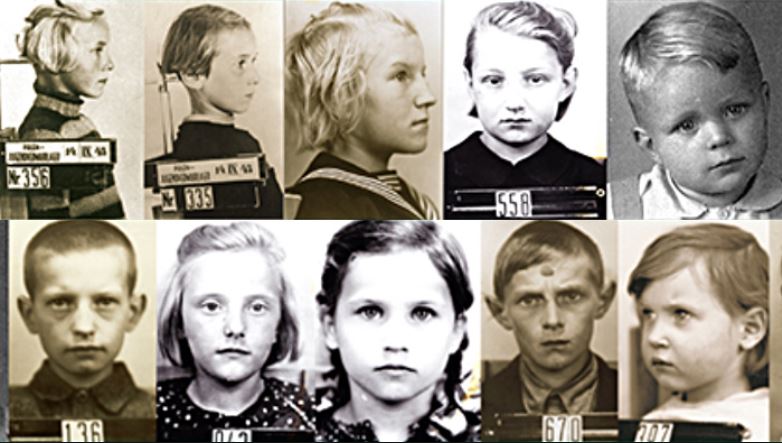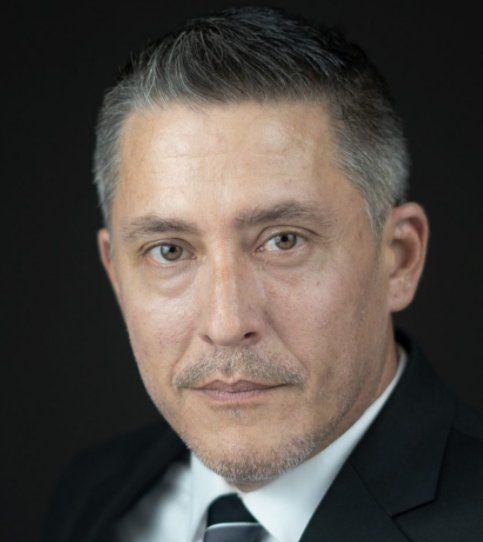This crime cannot be compared to any other.
In 1942, in Łódź, at Przemysłowa Street, the Germans established a concentration camp strictly for Polish children. Several-month-old babies were sent there and mistreated there.
Why were the youngest sent to Kinder-KL Litzmannstadt - Auschwitz for children? This camp was called "Little Auschwitz," where Polish children were worked to death.
The camp at Przemysłowa Street was a labor camp because, against the law, including German law, the imprisoned children had to work from morning to evening and comply with the established standards.
The boys made straw boots, straw mats for tanks, wicker baskets, straps for gas masks and leather parts for backpacks, mended shoes, worked in the garden, and straightened industrial needles. "To be or not to be" depended on the adult who commanded the workshop. Those in charge of the workshops were often the ones from the ghettos.
The girls sewed, washed, helped in the kitchen, and tidied up the area and rooms. The youngest ones glued handbags made pots and artificial flowers. It was a curse to level the terrain with a monstrously heavy roller. The children were small and hungry, and they were driven with a whip. They worked regardless of the conditions.
It was also a concentration camp because an extensive group of people was imprisoned there - on average more than a thousand children were imprisoned every day, so it was not a tiny lager.
Obergruppenführer SS Oswald Pohl, the primary economic and administrative manager of the Nazi German concentration camps, reported in a statement on April 30, 1942, about this camp. He mentioned, among others, Dachau, Sachsenhausen, Buchenwald, Ravensbrück, Mauthausen, Auschwitz and four special camps for young people, including Jugendschutzlager Litzmannstadt, i.e., the camp at Przemysłowa Street. According to current German law, the Lodz camp does not qualify as a concentration camp, yet it did. This was a way to overlook its sinister nature, and we didn't find out about this for many decades.
It was also a death camp because, despite the competencies of contemporary medicine, no sick children were rescued there, and the repressive measures used there inevitably led to the loss of life. "There was no gas and no crematorium because they were not needed. We were killed with hunger, work, beatings, and frost," claims survivor Jerzy Jeżewicz. Children were just discarded when dead in unknown graves.
Boys and girls were sent to Przemysłowa, mainly from Silesia, Greater Poland, Pomerania, Mazowsze, Łódź, and the surrounding area; homeless children were detained on streets, roads, and train stations. A separate, large group consisted of youth from the resistance movement, children of members of underground organizations, mainly from Poznań and Mosina.
Reasons for children to be sent to a concentration camp?
There are justifications in the German court records:
"Throwing bread into the ghetto",
"Neglected Polish child" or only "Polish child,"
"Orphan, wandering, destitute",
"Daughter of a Polish professor",
"There is a fear that it comes from the Gypsies",
"It disturbs the environment and has a negative impact on German children",
"Illegally acquired food cards",
"Father working in the Reich, mother in Oświęcim,"
"Steals fruit from the gardens with other children, especially from German citizens; the father is dead",
"Found at the age of 3, crippled, hard to raise shakes his head, wets the bed"
"The futility of further education",
"Due to his spiritual attitude and his belonging to the Polish nation, he is not suitable for home education as part of social welfare and should be transferred to a camp for neglected Polish youth in Łódź, according to the order of the Reich Minister of Internal Affairs",
"Son of a Polish officer",
"Parents are dead, begging, wandering",
"He is begging; he tried to arouse sympathy in the population because he lacks one arm and leg",
"Earns money by taking suitcases from the train station in Katowice",
"He brings the harvested things home",The article is an translation excerpt from the book by Jolanta Sowińska-Gogacz and Błażej Torański, Mały Oświęcim. Children's camp in Łódź . It was published by the Prószyński i S-ka publishing house.



Dodaj
komentarz
By dodać komentarz musisz być zalogowany. Zaloguj się.
Nie masz jeszcze konta? Zarejestruj się.